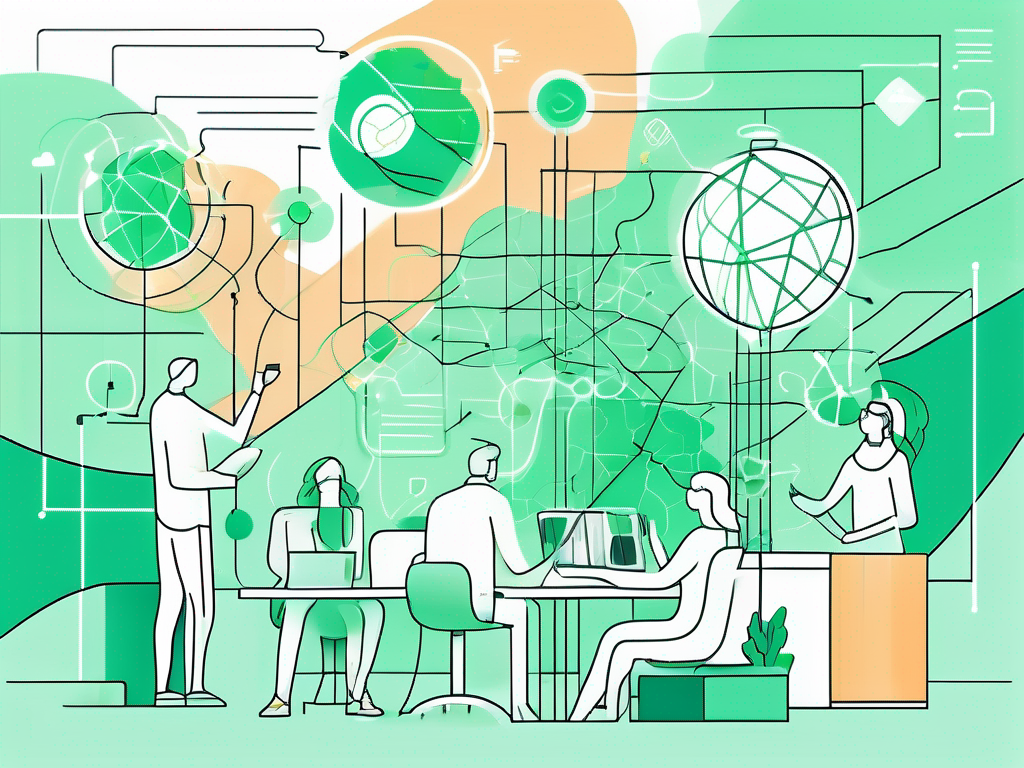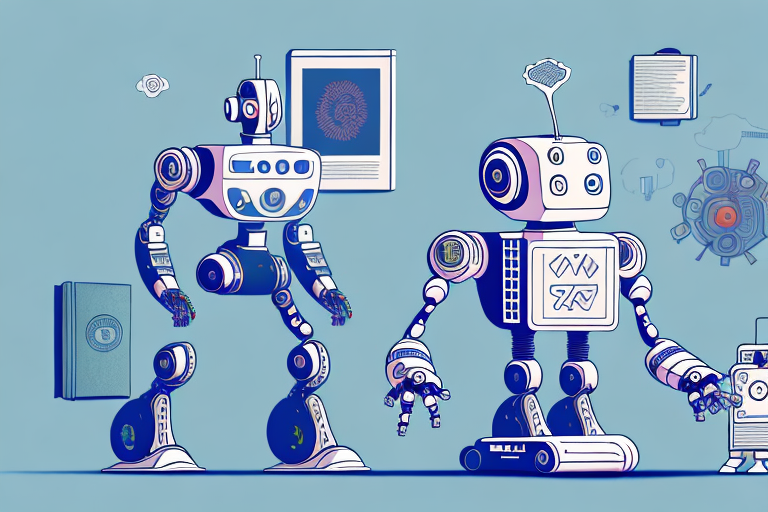.svg)
Why Decentralised Teams Are the Future of Work in Marketing
.svg)

Decentralised teams are emerging as a pivotal force shaping the future of work. As businesses strive to adapt to the digital age, the traditional office-centric model is giving way to more flexible, distributed approaches. This shift is not merely a trend but a fundamental transformation in how marketing teams operate, collaborate, and succeed. By leveraging technology and embracing a global talent pool, decentralised teams offer unprecedented opportunities for innovation, efficiency, and growth.
The Rise of Decentralised Teams
Technological Advancements Driving Change
The advent of advanced communication tools and platforms has been instrumental in the rise of decentralised teams. With high-speed internet, cloud-based services, and collaborative software, team members can now work seamlessly from different locations around the globe. Tools such as Slack, Zoom, and Trello have become staples in the modern marketing toolkit, enabling real-time communication and project management regardless of geographical boundaries. This technological infrastructure supports a more agile and responsive approach to marketing, allowing teams to pivot quickly in response to market changes.
Global Talent Pool
Decentralised teams provide access to a diverse and expansive talent pool that transcends local limitations. By recruiting team members from various regions, companies can tap into a wide range of skills, perspectives, and expertise. This diversity fosters creativity and innovation, as team members bring unique insights and approaches to problem-solving. Moreover, hiring from a global talent pool allows businesses to operate across different time zones, ensuring continuous productivity and the ability to cater to international markets more effectively.
Cost Efficiency
Operating with decentralised teams can lead to significant cost savings for businesses. By reducing the need for physical office space and associated overheads, companies can allocate resources more strategically. Additionally, the flexibility to hire talent from regions with lower living costs can result in more competitive salary structures. These financial efficiencies enable businesses to invest more in marketing initiatives, technology, and talent development, ultimately driving growth and competitiveness in the marketplace.
Benefits of Decentralised Marketing Teams
Enhanced Flexibility and Work-Life Balance
One of the most significant benefits of decentralised teams is the enhanced flexibility they offer to employees. By allowing team members to work from locations of their choice, companies can provide a better work-life balance, leading to increased job satisfaction and reduced burnout. This flexibility is particularly appealing to younger generations who prioritise work-life integration and value the ability to tailor their work environment to their personal needs.
Increased Productivity and Efficiency
Contrary to traditional concerns about remote work, decentralised teams often experience increased productivity and efficiency. With fewer distractions and the ability to create personalised work environments, team members can focus more intently on their tasks. Additionally, the asynchronous nature of decentralised work allows individuals to work during their peak productivity hours, further enhancing output and creativity. This efficiency is crucial in the fast-paced world of marketing, where timely execution can make all the difference.
Improved Collaboration and Innovation
Decentralised teams foster a culture of collaboration and innovation by leveraging diverse perspectives and expertise. With team members spread across different regions and backgrounds, there is a constant exchange of ideas and approaches that can lead to groundbreaking marketing strategies. Collaborative tools and platforms facilitate this exchange, enabling teams to brainstorm, plan, and execute campaigns with a level of creativity and innovation that is often unmatched in traditional settings.
Challenges and Solutions
Communication and Coordination
One of the primary challenges faced by decentralised teams is maintaining effective communication and coordination. Without the benefit of face-to-face interactions, misunderstandings and miscommunications can occur more frequently. To address this, companies must invest in robust communication tools and establish clear protocols for information sharing and decision-making. Regular virtual meetings, clear documentation, and the use of collaborative platforms can help bridge the communication gap and ensure that all team members are aligned and informed.
Building a Strong Team Culture
Creating and maintaining a strong team culture can be challenging in a decentralised setup. Without the physical presence and daily interactions that naturally build camaraderie, companies must be intentional about fostering a sense of belonging and shared purpose. Virtual team-building activities, regular check-ins, and opportunities for social interaction can help strengthen team bonds. Additionally, recognising and celebrating achievements, both big and small, can reinforce a positive and inclusive team culture.
Ensuring Accountability and Performance
Ensuring accountability and measuring performance in a decentralised team requires a shift from traditional management approaches. Companies must focus on outcomes rather than processes, setting clear goals and expectations for team members. Regular performance reviews, feedback sessions, and the use of project management tools can help track progress and ensure accountability. By empowering team members with autonomy and responsibility, businesses can foster a culture of trust and high performance.
Implementing a Decentralised Team Structure
Strategic Planning and Goal Setting
Implementing a successful decentralised team structure begins with strategic planning and goal setting. Companies must clearly define their objectives and identify the roles and responsibilities required to achieve them. This involves assessing the skills and expertise needed and determining the best locations to source talent. By aligning team structure with business goals, companies can ensure that their decentralised teams are well-equipped to drive success.
Investing in Technology and Infrastructure
To support a decentralised team, companies must invest in the right technology and infrastructure. This includes communication and collaboration tools, cybersecurity measures, and reliable internet connectivity. Providing team members with the necessary equipment and resources is essential to ensure seamless operations and maintain productivity. Additionally, ongoing training and support can help team members stay up-to-date with the latest tools and technologies, further enhancing their effectiveness.
Fostering a Culture of Continuous Improvement
Continuous improvement is vital for the success of decentralised teams. Companies must encourage a culture of learning and development, providing opportunities for team members to enhance their skills and knowledge. Regular feedback and performance reviews can help identify areas for improvement and growth. By fostering a culture of continuous improvement, businesses can ensure that their decentralised teams remain agile, innovative, and competitive in the ever-changing marketing landscape.
The Future of Marketing with Decentralised Teams
Adapting to a Changing World
As the world continues to evolve, decentralised teams are poised to play an increasingly important role in the future of marketing. The flexibility, diversity, and innovation they offer are essential in navigating the complexities of the modern business environment. By embracing decentralised teams, companies can adapt to changing market dynamics and remain competitive in an increasingly globalised world.
Driving Innovation and Growth
Decentralised teams are at the forefront of driving innovation and growth in marketing. By leveraging the diverse perspectives and expertise of team members from around the world, companies can develop cutting-edge strategies and campaigns that resonate with a global audience. This innovation is crucial for businesses looking to differentiate themselves and capture new market opportunities.
Embracing a New Era of Work
The shift towards decentralised teams represents a new era of work in marketing. As companies continue to embrace this model, they are redefining what it means to work collaboratively and creatively. By prioritising flexibility, inclusivity, and innovation, decentralised teams are setting the stage for a future where marketing is more dynamic, responsive, and impactful than ever before.
In conclusion, decentralised teams are not just a passing trend but a fundamental shift in the way marketing is conducted. By embracing this model, companies can unlock new levels of creativity, efficiency, and success, positioning themselves at the forefront of the industry in the years to come.
Related Posts
Let's
Let’s discuss how we can bring reinvigorated value and purpose to your brand.







.svg)